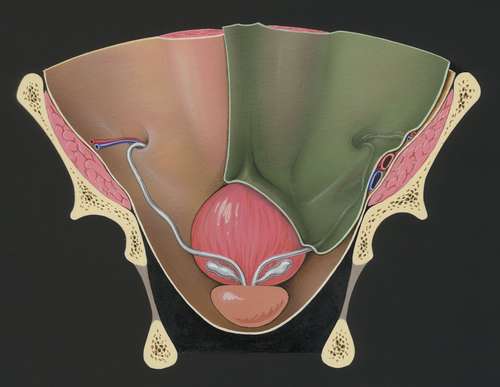Prostate cancer is one of the most common cancers in men, but it often doesn't cause noticeable symptoms in its early stages. This makes prostate cancer screening crucial, especially as men age. Understanding the early symptoms of prostate cancer can help men seek medical attention promptly, leading to early diagnosis and better treatment outcomes.
Prostate Gland and Its Function
The prostate is a small, walnut-shaped gland located below the bladder in men. It plays a vital role in the male reproductive system by producing seminal fluid, which nourishes and transports sperm. As men age, the prostate can enlarge, leading to urinary problems that may mimic prostate cancer symptoms.
Early Stages of Prostate Cancer
In the early stages of prostate cancer, there are often no symptoms. This is why regular prostate cancer screening is essential, especially for men over 50. Early detection through screening allows for more effective treatment and increases the chances of a cure.
Symptoms of Prostate Cancer
When symptoms of prostate cancer do appear, they often indicate that the disease has progressed. It's crucial to be aware of these warning signs and seek medical advice if you experience any of them:
Urinary Problems
- Trouble urinating: Difficulty starting or maintaining a urine stream is a common symptom. This can include straining to urinate, a weak or interrupted urine flow, or the feeling of not fully emptying the bladder.
- Frequent urination: The need to urinate more often, especially at night, can be an early sign. This is often due to the enlarged prostate pressing on the urethra, obstructing urine flow.
- Painful or burning urination: A burning sensation during urination or ejaculation can signal prostate problems, including cancer. While other conditions can cause this symptom, it's crucial to have it checked by a doctor.
Other Symptoms
While less common, other symptoms of prostate cancer can include:
- Pelvic pain: Persistent pain or discomfort in the pelvic area, rectum, or lower back can be a sign of advanced prostate cancer that has spread to nearby tissues.
- Bone pain: Pain in the bones, particularly the back, hips, or pelvis, can indicate that prostate cancer has spread to the bones (metastasized).
- Erectile dysfunction: Difficulty achieving or maintaining an erection can be a symptom, but it's important to note that erectile dysfunction can also be caused by other factors.
- Unexplained weight loss: Significant weight loss without trying can be a general symptom of cancer, including prostate cancer.
Other Prostate Conditions
It's important to remember that many of these symptoms of prostate cancer can also be caused by other, less serious conditions affecting the prostate, such as:
1. Benign Prostatic Hyperplasia (BPH)
Also known as an enlarged prostate, BPH is a non-cancerous growth that can cause similar urinary symptoms to prostate cancer.
2. Prostatitis
This refers to inflammation of the prostate, often due to infection, and can cause pain, urinary problems, and fever.
3. Kidney Stones
These can cause pain during urinating and blood in the urine, mimicking symptoms of prostate cancer.
4. Urinary Tract Infections (UTIs)
While more common in women, UTIs can also affect men, causing painful and frequent urination.
Importance of Prostate Cancer Screening
Since many men experience no symptoms in the early stages of prostate cancer, regular screening is crucial. Prostate cancer screening typically involves:
- Prostate-Specific Antigen (PSA) test: This blood test measures the level of PSA, a protein produced by the prostate. Elevated PSA levels can indicate prostate cancer but may also be caused by other prostate conditions.
- Digital Rectal Exam (DRE): During a DRE, a doctor inserts a gloved finger into the rectum to feel the prostate for any abnormalities, such as lumps or hard areas.
It's essential to discuss prostate cancer screening with your doctor, starting at age 45 or earlier if you have risk factors.
Closing Note
Being aware of the early symptoms of prostate cancer and understanding the importance of prostate cancer screening can empower men to take control of their health. While experiencing any of the mentioned symptoms doesn't necessarily mean you have prostate cancer, it's crucial to consult a doctor for a proper diagnosis and discuss appropriate next steps. Early detection is key to successfully treating prostate cancer.




